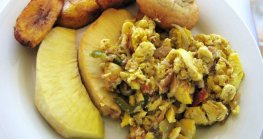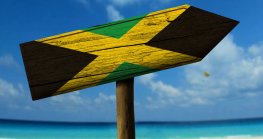The story of Marcus Garvey
.png&w=848&h=499&zc=1)
You are standing in downtown Kingston near National Heroes Park, where the sound of traffic mixes with the faint echo of Reggae coming from a radio at the fruit stand nearby.
Somewhere close by, schoolchildren are learning about the man whose name is etched in bronze, Marcus Mosiah Garvey.
They learn about his vision of Black pride and unity that changed not just Jamaica, but the entire world.
What was his vision?
And what do you know about the story of this visionary?
Here's the story of Marcus Mosiah Garvey.
The birth of a visionary
Marcus Mosiah Garvey was born on August 17, 1887, in St. Ann’s Bay, a small seaside town that still carries a quiet strength.
His father, Marcus Sr., was a stone mason and an avid reader, while his mother, Sarah Jane Richards, worked as a domestic helper.
They were not wealthy, but they filled their modest home with a deep respect for learning.
As a boy, Garvey spent hours in his father’s small library, reading every book he could find on history, philosophy, and politics.
He attended the St. Ann’s Bay Primary School, where he excelled in English and debating.
When he was a teenager, Garvey began working as an apprentice printer.
The trade exposed him to the power of the written word to shape opinions and drive social change.
By 14, he was already helping to produce newspapers and pamphlets in Kingston, often speaking out against poor working conditions.
These experiences taught him two important lessons: the value of communication and the harsh realities of racial inequality in colonial Jamaica.
The power of belief
Garvey’s famous phrase, “Emancipate yourselves from mental slavery,” still resonates through Jamaica’s music and identity,
It was famously echoed by Bob Marley decades later.
Through speeches, newspapers, and rallies, Garvey called for Africans and their descendants to reclaim their dignity and economic power.
While many thought his “Back to Africa” movement was about migration, Garvey was encouraging spiritual return and self-respect among melanated people.
Garvey's global impact
Though he faced opposition and imprisonment, Garvey’s ideas laid the foundation for later civil rights movements in America and anti-colonial movements in Africa.
Today, his influence can be felt across Jamaica, from Garveymeade in St. Catherine to schools and libraries bearing his name.
His philosophy continues to inspire young Jamaicans to dream boldly and think globally.
Garvey's legacy
Marcus Garvey reminds every visitor that Jamaica’s greatness extends far beyond its shores.
His message of empowerment shaped the nation’s identity and helped redefine Black consciousness worldwide.
Visit the Marcus Garvey Museum in St. Ann’s Bay to see his birthplace and artifacts from the early UNIA era.
It’s a humbling reminder that world-changing ideas often begin in small places.
Image credit: Jamaica Experiences / AI artwork created with ChatGPT (OpenAI).
© 2019 Jamaica Experiences All Rights Reserved



















